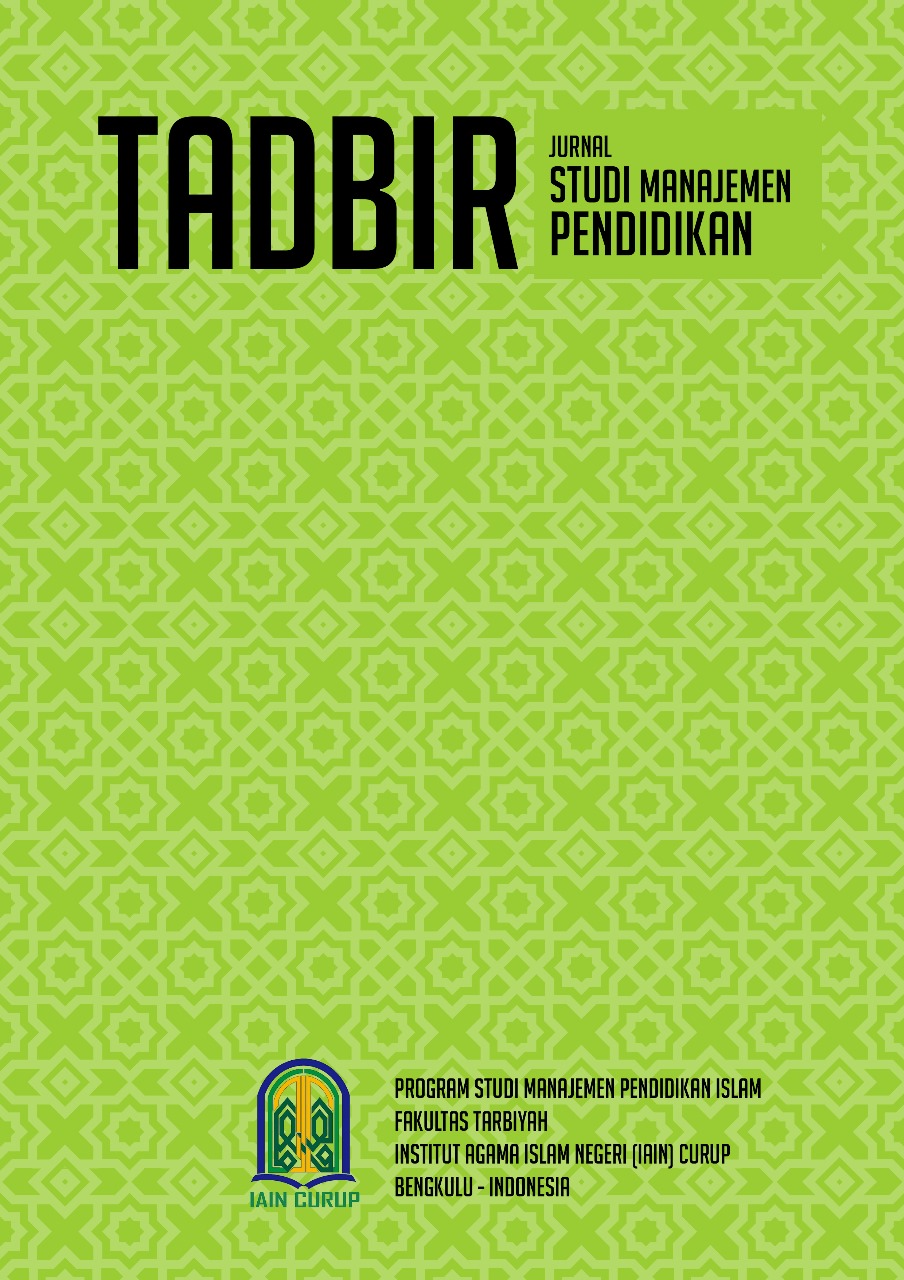Ten Years of Research on Spiritual Leadership: a Bibliometric Analysis
DOI:
https://doi.org/10.29240/jsmp.v8i2.11466Keywords:
Bibliometric, Leadership, Ten year of research, Spiritual leadershipAbstract
This bibliometric analysis explores the research landscape on spiritual leadership from 2014 to 2024, utilizing Scopus data to evaluate publication trends, key contributors, keyword co-occurrence, and directions for future research. A total of 268 peer-reviewed journal articles were analyzed through bibliometric methods. The findings reveal significant growth in research, particularly after 2018, with annual increases observed thereafter. In terms of contributions, Indonesia, China, and the United States stand out, with Indonesia leading in publication volume, while the United States and Thailand exhibit higher average citation impacts, indicating varying levels of influence across regions. Thematic analysis highlights a strong focus on workplace spirituality, employee well-being, job satisfaction, and organizational commitment. Network visualization emphasizes the central role of spiritual leadership and its associations with ethical leadership, employee performance, and organizational citizenship behavior. Emerging themes include sustainability, innovation, and crisis leadership, particularly in response to the COVID-19 pandemic. These findings suggest promising research opportunities in crisis management, sustainability, and cross-cultural applications of spiritual leadership, underscoring the field’s dynamic and expanding relevance in addressing contemporary organizational challenges.
Downloads
References
Abbas, A. F., Jusoh, A., Mas’od, A., Alsharif, A. H., & Ali, J. (2022). Bibliometrix analysis of information sharing in social media. Cogent Business & Management, 9(1). https://doi.org/10.1080/23311975.2021.2016556
Abrori, I., & Sari, P. T. (2018). Influence of organizational culture and leadership toward commitment of organizational commitee at al jauhar islamic boarding school Sumbersari Jember. International Journal of Scientific and Technology Research, 7(6), 37 – 43. https://www.scopus.com/inward/record.uri?eid=2-s2.0-85059763437&partnerID=40&md5=ba683835c3276b95bd0499efe837ff28
Alfarajat, H. S., & Emeagwali, O. L. (2021). Antecedents of Service Innovative Behavior: The Role of Spiritual Leadership and Workplace Spirituality. Organizacija, 54(4), 320 – 333. https://doi.org/10.2478/orga-2021-0022
Arif, S., Zainudin, Z., & Hamid, A. (2019). Influence of Leadership, Organizational Culture, Work Motivation, and Job Satisfaction of Performance Principles of Senior High School in Medan City. Budapest International Research and Critics Institute (BIRCI-Journal) : Humanities and Social Sciences, 2(4), 239–254. https://doi.org/10.33258/birci.v2i4.619
Arjaya, I. B. A., Suastra, I. W., Redhana, I. W., & Sudiatmika, A. A. I. A. R. (2024). Global Trends in Local Wisdom Integration in Education: A Comprehensive Bibliometric Mapping Analysis from 2020 to 2024. International Journal of Learning, Teaching and Educational Research, 23(7), 120 – 140. https://doi.org/10.26803/ijlter.23.7.7
Baas, J., Schotten, M., Plume, A., Côté, G., & Karimi, R. (2020). Scopus as a curated, high-quality bibliometric data source for academic research in quantitative science studies. Quantitative Science Studies, 1(1), 377–386. https://doi.org/10.1162/qss_a_00019
Bayighomog, S. W., & Arasli, H. (2022). Reviving employees’ essence of hospitality through spiritual wellbeing, spiritual leadership, and emotional intelligence. Tourism Management, 89. https://doi.org/10.1016/j.tourman.2021.104406
Bhardwaj, A., Mishra, S., & Jain, T. K. (2020). Analysis of strategic leadership for organizational transformation and employee engagement. Materials Today: Proceedings, 37(Part 2), 161 – 165. https://doi.org/10.1016/j.matpr.2020.04.774
Cawthon, D. (2017). Philosophical Foundations of Leadership. Routledge. https://doi.org/10.4324/9781351324601
Cecilia-Martín, M., Rubio-González, L., Morón-Marchena, J.-A., & Cobos-Sanchiz, D. (2020). Teacher burnout: a bibliometric analysis of scientific production indexed on Scopus; [Burnout docente: un análisis bibliométrico sobre la producción científica indexada en Scopus]. International Journal of Educational Research and Innovation, 2020(14), 197 – 210. https://doi.org/10.46661/ijeri.4949
Damayanti, S., Sumaedi, S., & Astrini, N. (2023). Studies on start-ups during COVID-19 pandemic: a bibliometric study. Competitiveness Review: An International Business Journal, ahead-of-print(ahead-of-print). https://doi.org/10.1108/CR-12-2022-0183
Falah, M. M., Nugroho, S. E., & Ridlo, S. (2024). Socio-scientific Issues (SSI) research trends: A systematic literature review of publications 2011 – 2022. Journal of Turkish Science Education, 21(1), 61–81. https://doi.org/10.36681/tused.2024.004
Downloads
Published
How to Cite
Issue
Section
Citation Check
License
Copyright (c) 2024 Adli Adli, Johar Permana, Eka Prihatin, Nur Aedi

This work is licensed under a Creative Commons Attribution-NonCommercial-ShareAlike 4.0 International License.













 This work is licensed under a
This work is licensed under a 